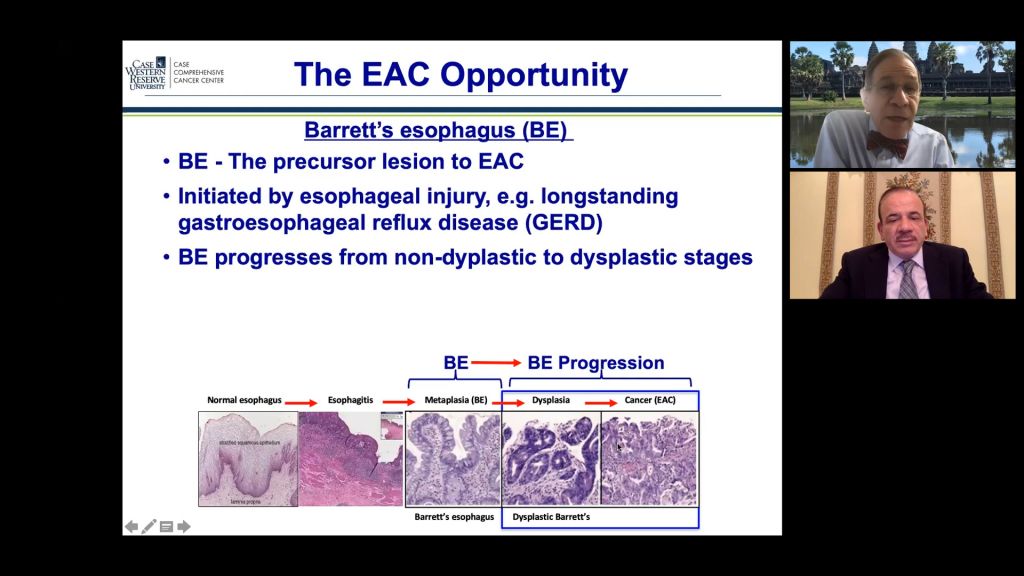Dubai-9th November 2021: The Sheikh Hamdan Bin Rashid Al Maktoum Award for Medical Sciences held its third webinar in its webinar series yesterday, Monday, November 8, 2021. The webinar discussed the topic of Gastroenterology, and was attended by 300 participants from all over the world.
The webinar hosted a talk from Prof. Sanford Markowitz, Ingalls Professor of Cancer Genetics- Distinguished University Professor - Case Western Reserve University- USA and winner of the Hamdan Award for Medical Research Excellence. The webinar was moderated by Dr. Adnan Abuhammour, Chairman of the Medrise Medical Center and Member of the Board of Directors of the Dubai Healthcare City Authority.
Prof. Sanford spoke about biomarkers-based detection of Barrett's oesophagus without the use of endoscopy to prevent oesophageal adenocarcinoma. He specifically talked about his research that led to the Molecular Colonoscopy method to detect DNA methylation of the vimentin gene in stool, and its use as a biomarker to diagnose colon cancer instead of gastrointestinal endoscopy.
He also talked about the possibility of using a similar technique in other parts of the digestive system, such as the oesophagus. He pointed out the importance of early diagnosis and control of the predisposing factors and pathological conditions that lead to the development of oesophageal cancer, such as the Barrett's oesophagus, which shows tissue abnormalities resulting from many causes, including constant gastroesophageal reflux. He also talked about the challenges of diagnosing Barrett's oesophagus using endoscopy, which in addition to being a completely unpopular diagnostic method for patients, also does not detect approximately 90% of Barrett's oesophagus cases.
He worked with his team to come up with a proper use of the molecular cytology techniques as biological markers to diagnose chromosomal anomalies and neoplastic formations in the oesophageal cells without using the gastro oesophageal endoscopy, thus providing better opportunities for preventing these cases from developing Barrett’s oesophagus into oesophageal cancer.
He also talked about the technology, both the device that is engineered to collect the samples (the oesophageal brushings) from the oesophagus without using the endoscopy, and then assessing the methylated DNA as a molecular biomarker to detect tissue defects in Barrett's oesophagus, and to classify the extent of anomalies, and detection of cancer cells development. It is an effective, convenient and time-saving method which does not require anaesthesia, and is relatively cheap compared to gastrointestinal endoscopy.
He mentioned that it is possible to assess the severity of Barrett's oesophagus, with more sensitive molecular monitoring for early detection of cancer development, thereby preventing over diagnosis and overtreatment of low-risk patients, given the existing challenges in improving the detection of cancerous progression in collected samples.
It is worth noting that the 4th webinar in the series will be held on December 14, 2021, and will be presented by Professor Frederick Kaplan, winner of Grand Hamdan International Award - Musculoskeletal Disorders 2017-2018.

